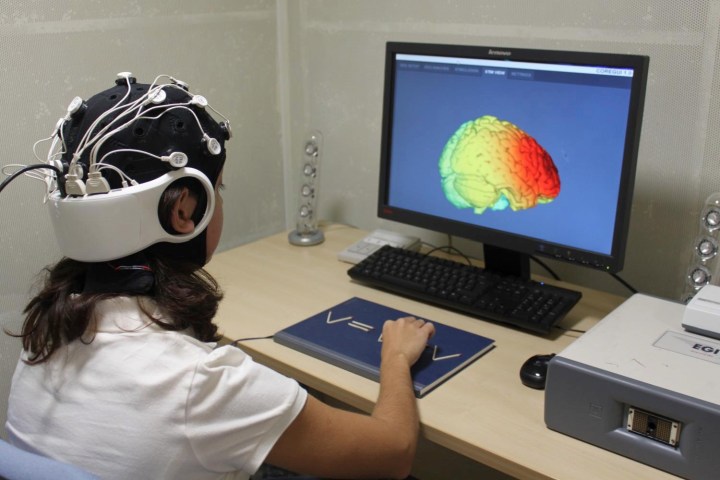
In a study involving 60 participants, a weak electrical current was applied to the scalp using electrodes. The currents were sufficiently low that they did not cause any harm or unpleasant sensations. When the transcranial direct-current stimulation (tDCS) technique was used to suppress a key part of the frontal brain called the left dorsolateral prefrontal cortex, participants were shown to get better at carrying out “creative” tasks involving out-of-the-box thinking. However, since the left dorsolateral prefrontal cortex is a part of the brain heavily involved in much of our reasoning processes, they got worse at solving problems in which many items needed to be held in mind at once.
“We suggest that inhibiting this region could help thinking out of the box because this is the very same region which implements well-learned solutions to problems,” Dr. Caroline Di Bernardi Luft, from QMUL’s School of Biological and Chemical Sciences, told Digital Trends. “Most creative problems require people to break free of deeply rooted assumptions to be able to come up with something new, and this is precisely the process that we believe to have affected using cathodal tDCS.”
According to Luft, there are two surprising aspects of the work. The first is that it demonstrates that creativity is a cognitive skill, which can be broken down to smaller processes that can be specifically targeted. That suggests there is not one specific brain area that’s responsible for creativity, but rather that understanding it requires a broader understanding of the brain as a whole.
“The second surprising factor,” Luft added, “was that we were able to replicate the findings of a study with patients with prefrontal cortex lesions. These patients were more likely to solve hard ‘think out of the box’ problems, which was remarkable evidence that this brain region might hinder creative problem solving. By using tDCS, we were able to temporarily mimic such effect, without causing any lasting changes in brain activity.”
Her one word of caution? Despite the number of companies selling brain stimulation machines for home use, don’t try this yourself if you happen to need a jolt of creativity. “The effects might actually be the opposite of what the person using it is expecting as the stimulation can benefit certain cognitive functions and impair others at the same time,” she said.
The work is described in the journal Scientific Reports.
Editors' Recommendations
- Microsoft’s DirectStorage can now boost your game loading times by 200%
- Space radiation can damage mice’s brains and cause anxiety, study shows


